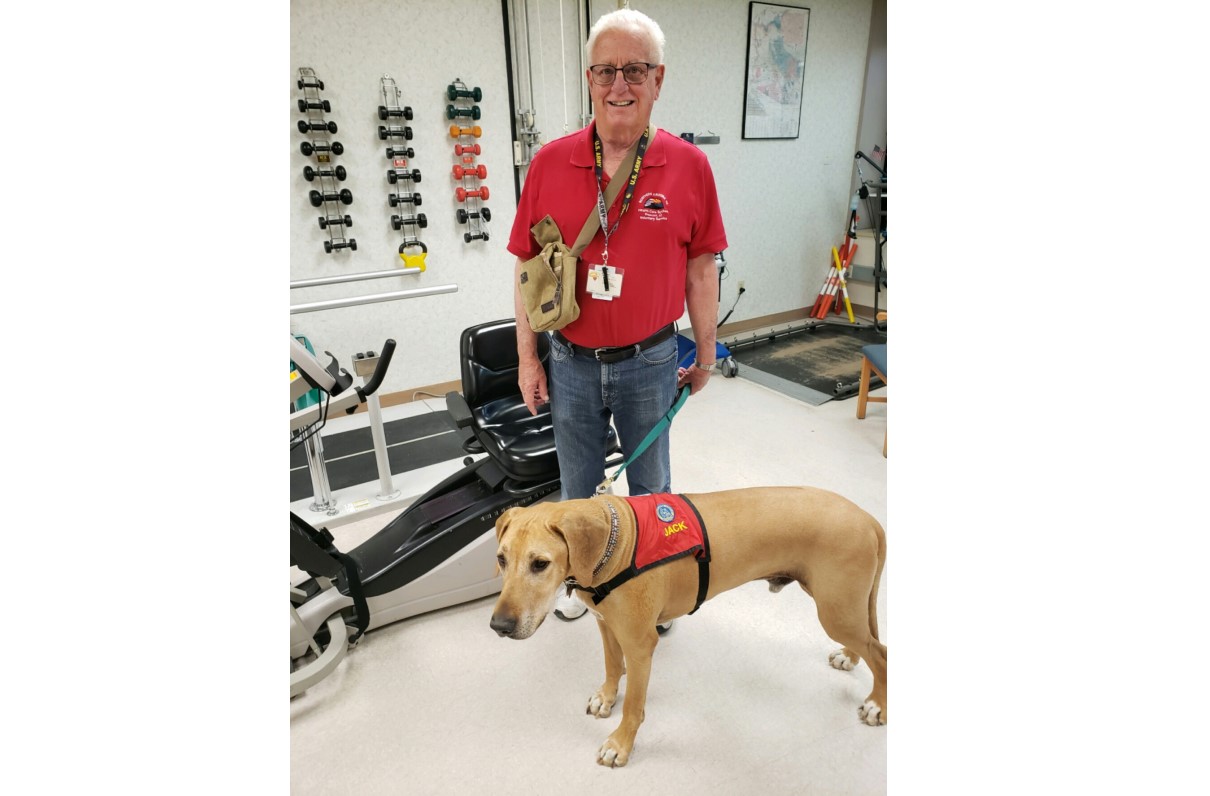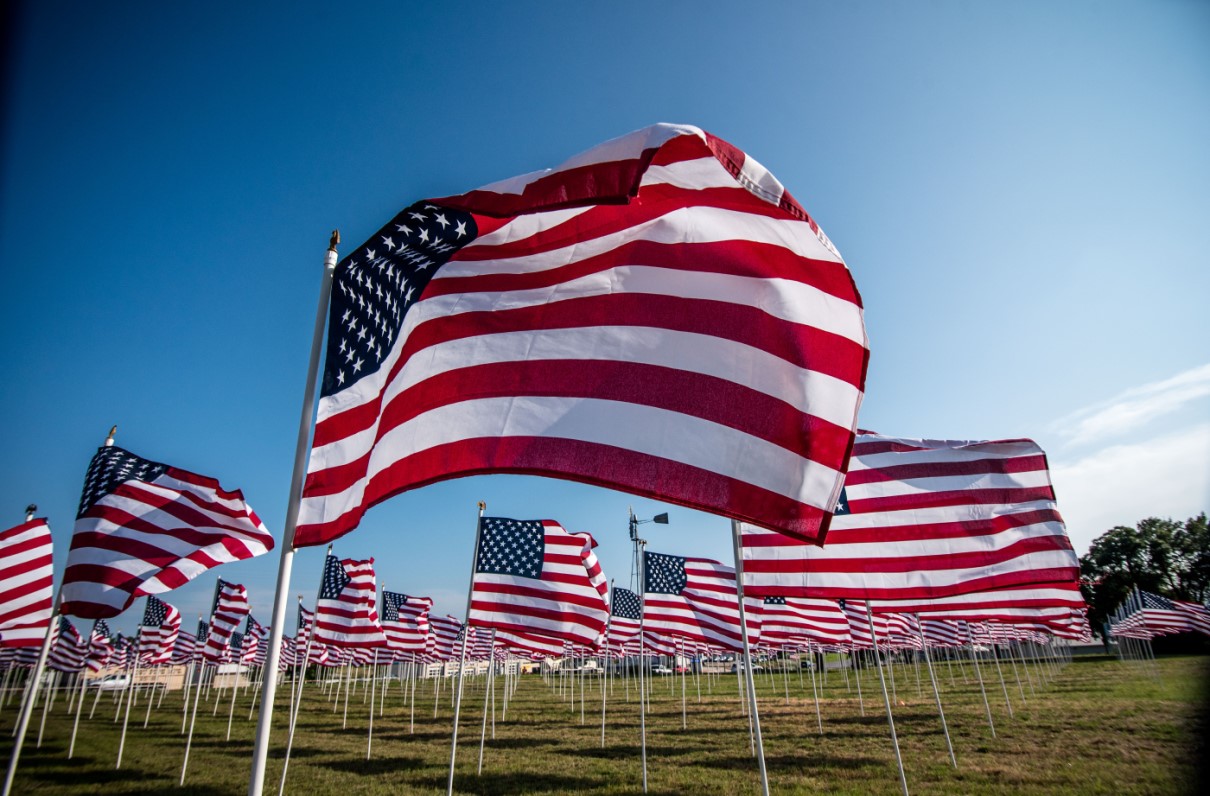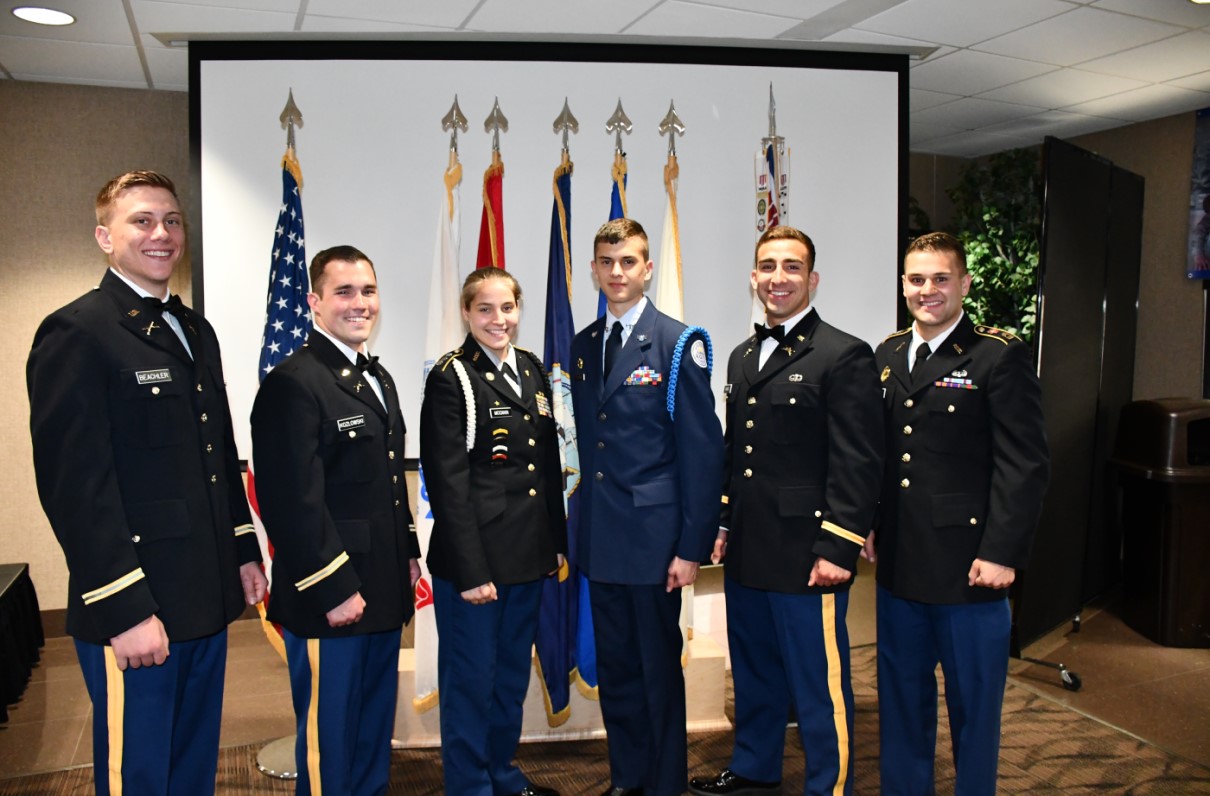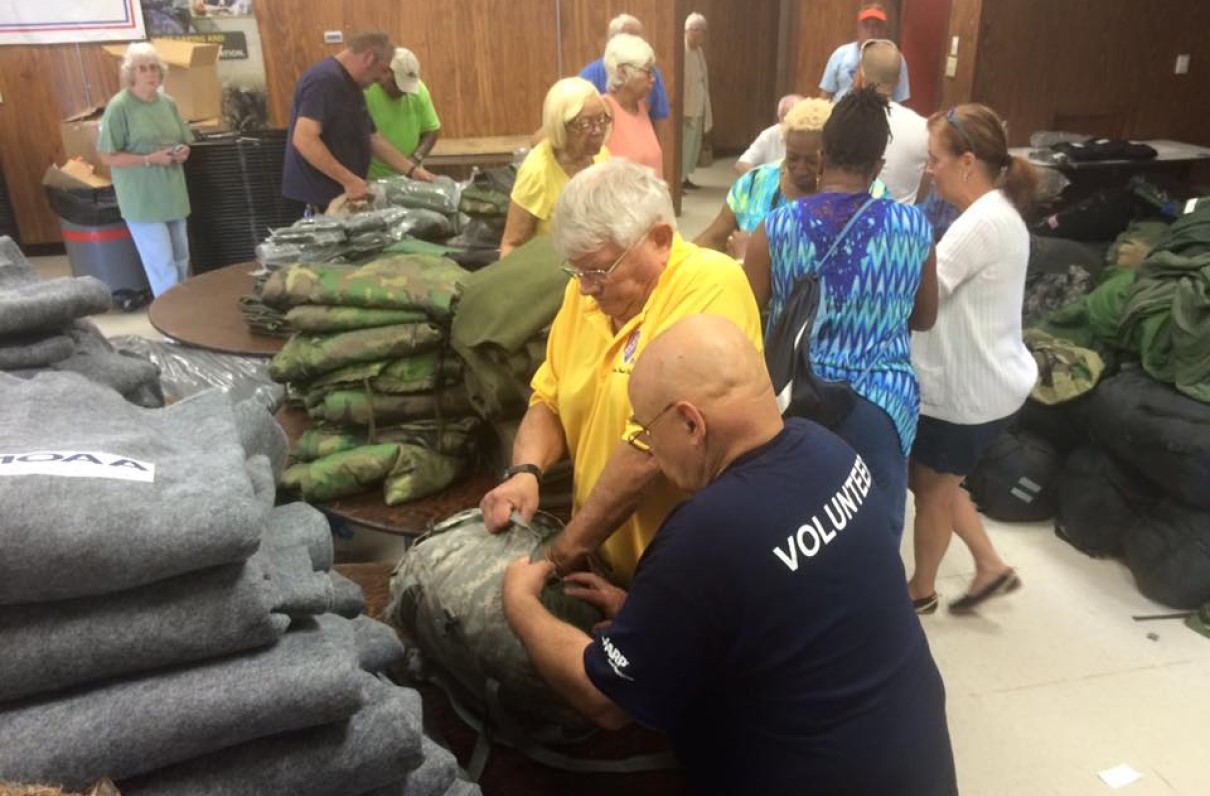By Blair Drake, MOAA Contributing Editor
Once a week, former Army Maj. George D. Clark, a member of the Northern Arizona Chapter, and his certified therapy dog, Jack, volunteer at the Northern Arizona Veterans Affairs Health Care System in Prescott, Ariz.
For Clark, a therapy dog handler in the long term care wings of the hospital, volunteering at the facility fulfills what he was trained in the military to do: take care of those men who he placed in harm’s way. So he was shocked to learn that out of over 400 volunteers at the facility, he’s one of only a handful of former or retired officers.
“This distressed me greatly,” he says. “At Fort Benning, Ga., I was told an officer’s priorities were in the three M’s: mission, men, and, last, me.” He’s sharing his experience in hopes of encouraging other MOAA members to volunteer at their local VA facilities.
Q. Why did you start volunteering at the VA facility?
A. Forty years after leaving active duty, I ended up seeking treatment in the local Veterans Health Care System facility. A fine man wearing a shirt with the hospital’s logo on it and a 173rd Airborne Brigade/Vietnam Service Ribbon baseball cap escorted me to the proper offices. I found out he was a retired master sergeant who felt that his responsibility for “his” men didn’t end when he got his retirement check, and he spent a day a week helping others deal with the system.
I had been looking for a facility or program in which I could volunteer, so when I found the VA had this program, I opted in immediately. I became a volunteer about 30 days after my initial visit.
Q. What have you learned about the patients there?
A. The patients in the VA medical system are predominately former enlisted members of the U.S. military. Just as in the active military, the numbers are skewed toward the lower five enlisted grades. In many cases, when these servicemembers come to the VA hospital, they are not doing well. It’s a tough period in many of their lives. They’re ill, disabled, and often financially stressed. Some are even homeless.
Q. Could this be a volunteer activity for MOAA chapters?
A. Yes. In addition to having individual volunteers, the VA has a formal structure of service-connected organizations that provide volunteers at a number of facilities. There are quarterly advisory committee meetings where the organizations have opportunities to contribute to the care the patients receive. To be a part of this national program, an organization needs to provide volunteers at 30 facilities. MOAA currently isn’t on the list.
Interested MOAA chapters can contact the volunteer coordinator at their local facility. They will be happy to provide you a speaker to give a presentation about volunteering at one of your meetings.
Q. Why do you encourage fellow officers to volunteer at the VA?
A. Leadership is what we in MOAA were about on active duty and what we should still be about. Some of our men and women need our leadership, help, and support — perhaps more than ever. These are the men and women who made our careers on active duty, and they are the ones we placed in harm’s way for our country. They need our support.



